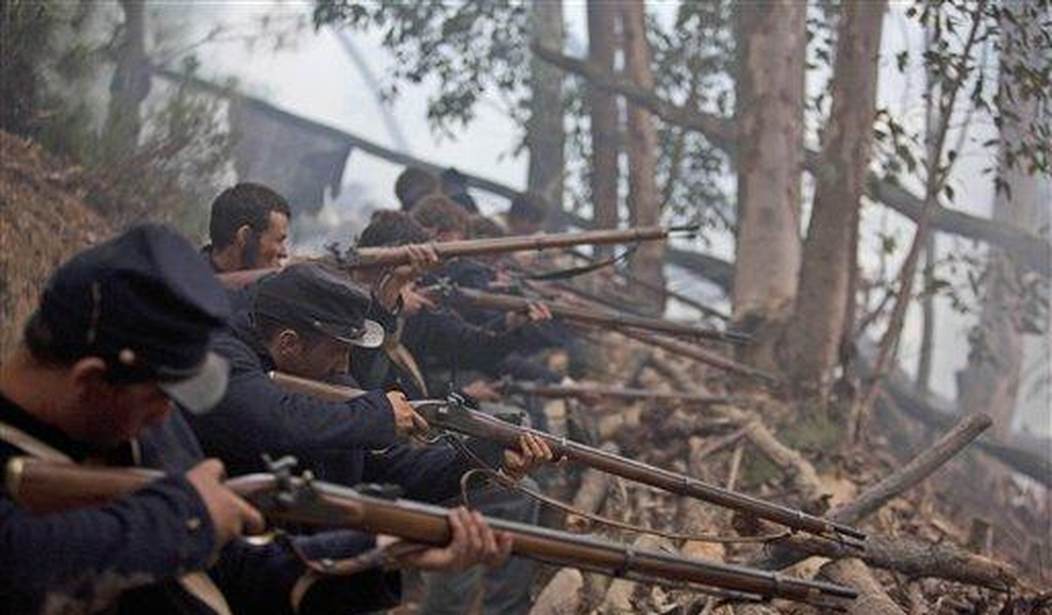Do they still force schoolchildren to memorize the 275-word Gettysburg Address? If they don't, they should. There is no greater statement of American values, and no more eloquent explanation of the meaning of America than that short, graceful utterance by Abraham Lincoln on Nov. 19, 1863.
Three things define a great speech: 1.) The moment: the exact time in history when the speaker's words will resonate; 2.) The backdrop: the place where the speech is delivered amplifies its meaning; and 3.) The words: all great speeches are as inspiring when read as they are when delivered orally.
Could Martin Luther King's "I Have a Dream" speech have been as effective if given in the 1950s or 1970s? Would it have been remembered if it had been delivered from a pulpit rather than in front of the Lincoln Memorial? The answer is probably yes, but its impact, would have been blunted and the majestic words would not have resonated with us down through the years to today.
Abraham Lincoln was not a good public speaker. He had a high, breathy voice that cracked when he strained to be heard in larger gatherings. He was invited to the dedication of the Gettysburg National Cemetary as an afterthought and was asked to deliver a few "appropriate remarks."
The main speaker was Edward Everett, former secretary of state under Millard Filmore, Massachusetts Senator, and a professional orator, whose two-hour, histrionic speech, with its classical allusions, biblical quotes, and flowery language, held the crowd spellbound.
Then it was Lincoln's turn. How could he top that masterpiece by Everett? He didn't try. He knew that the men who fought at Gettysburg “have consecrated" the ground "far above our poor power to add or detract.” So his aim was to promote a deeper resolve among his listeners to honor the dead and keep fighting for the ideals they died for.
He promised “that these dead shall not have died in vain, that this nation, under God, shall have a new birth of freedom, and that government of the people, by the people, for the people, shall not perish from the earth.”
Lincoln's "new birth of freedom" was revolutionary. In Gary Wills’ book, “Lincoln at Gettysburg,” the author writes that “the address completes the work of the guns,” and talks of “how Lincoln wove a spell that has not yet been broken.” Bruce Catton in “Glory Road” speaks of the address in terms of meaning for both North and South. Catton’s point is that no battle, no war was worth the kind of carnage witnessed at Gettysburg. Lincoln’s words, however, expanded the very definition of freedom and made a start toward binding the nation’s wounds.
By 1863, with casualties that the United States couldn't have imagined in 1861, the public was already desperate to find something that would make these extraordinary sacrifices meaningful. It wasn't enough to "save the union"— not if the proximate cause of the war would remain. Slavery was still a stain on the American experiment, and eliminating it was only part of the "new birth of freedom" Lincoln wanted.
He wanted freedom for the German and Irish immigrants who fought so courageously at Gettysburg. Beyond that, Lincoln's expansion of freedom's definition eventually meant equality under the law for blacks, Hispanics, women, gays, and anyone else who hungered for it.
Recommended: It's a Reckoning for DEI
Did Lincoln's words register immediately as historic?
In his eulogy for Lincoln two years later, Charles Sumner, a Massachusetts senator and leading abolitionist, lauded the Gettysburg Address as “a monumental act” made even more poignant by Lincoln’s assassination just after the Civil War’s conclusion in April 1865.
In response to Lincoln’s modest claim in the address that “the world will little note, nor long remember what we say here,” Sumner thought the late president was deeply mistaken. “The world noted at once what he said, and will never cease to remember it,” Sumner eulogized. He was right—though just 15,000 people are thought to have heard Lincoln speak that day, the address has since become a touchstone of American rhetoric.
Lincoln's "back of the envelope" speech has become the most important public utterance by any American. Bigger than Patrick Henry's "Give me liberty or give me death" speech to the House of Burgess in 1775 or FDR's "All we have to fear is fear itself" first inaugural address in 1933.
The man, the moment, the backdrop, and the words all came together that November day to deliver what I consider the greatest speech in American history.










Join the conversation as a VIP Member